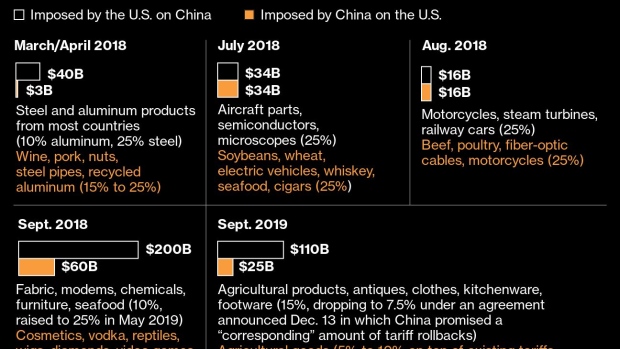Nov 16, 2022
Hard-Line China Push Is Vowed by Republicans Taking Control of the US House
, Bloomberg News

(Bloomberg) -- Republicans are expected to pressure President Joe Biden to pursue a more hawkish approach to China now that they’ve won control of the House of Representatives, with promises to probe White House policy toward Asia and confront Beijing more forcefully.
The GOP is likely to portray Biden’s attempt in Bali this week to ease tensions with China as a sign of weakness rather than a cause for celebration. Biden met President Xi Jinping on the sidelines of a Group of 20 summit on Monday and pledged to resume some contacts that had been severed in recent months.
House Republican leader Kevin McCarthy, who’s in position to replace Democrat Nancy Pelosi as speaker, has said he’ll lead a congressional trip to Taiwan, in an echo of her August visit. It would be likely to again produce a fierce response from China including military exercises and missile test launches near the self-governed island, and it might lead China to cut communications that were resumed as a result of Biden meeting Xi.
Beyond that, McCarthy wants to form a special congressional committee to go after China on everything from trade and national security to the origins of Covid-19. Each issue on his list may provoke Chinese condemnation and perhaps retaliation.
“We are looking at a much more dangerous deterioration of relations,” said Yun Sun, director of the China Program at the Stimson Center in Washington.
Republicans gained House control in the Nov. 8 midterm vote, winning at least the 218 needed of 435 seats, according to the Associated Press tally. Democrats kept narrow control of the Senate.
Despite the display of relative collegiality in Bali, the Biden administration continues to push back against China’s growing technological and military prowess, including through export controls targeting advanced semiconductors in an effort to prevent China from eventually outpacing America’s advanced industries and military arsenal.
Read more: Biden Trade Chief Says Next Phase of China Relationship Unclear
Representative Michael McCaul of Texas, the top Republican on the House Foreign Affairs Committee, and its expected next chairman, has questioned whether the administration is going far enough, asking Commerce Secretary Gina Raimondo to provide data to determine whether technology curbs on China were being undermined by an “overly lax licensing process.”
Biden has kept in place about $300 billion in tariffs on Chinese goods that were first imposed more than four years ago by former President Donald Trump.
The issue divides Republicans. Senator Pat Toomey, who is retiring, led an effort to push the US trade representative’s office to reinstate tariff exemptions for imports that are valuable to American manufacturers and can’t be sourced from elsewhere. But former US Trade Representative Robert Lighthizer lobbied senators against the exemptions behind the scenes.
Congressional pressure on trade policy may be determined in part by who takes over the powerful Ways and Means Committee. The ranking member, Republican Kevin Brady of Texas, who led the panel at the end of the Obama administration and the start of Trump’s term, is retiring. Vern Buchanan of Florida, Jason Smith of Missouri and Adrian Smith of Nebraska are seen as most likely contenders to succeed him.
Some Republicans will probably renew a push for tariff exemptions on certain imports from China needed by US manufacturers, said Robert Holleyman, who helped lead engagement with the nation as deputy US trade representative under President Barack Obama and is now a partner at the law firm Crowell and Moring LLP.
They’re also likely to be wary of being so aggressive on export controls for China that Beijing pushes back and retaliates against American agricultural exports and hurt farmers, he said.
The House will probably reexamine a report issued by the Republicans’ China Task Force, which was chaired by McCaul, said Randall Schriver, who served two years as assistant secretary of defense for Indo-Pacific Security Affairs under Trump.
“There are elements of that which I think you might see revisited -- things like research security, things like an outbound investment review mechanism,” said Schriver, who now chairs a Taiwan-focused think tank called the Project 2049 Institute, referring to tightening scrutiny of US government-funded academic research.
Schriver said that it will be key to see who’s appointed to lead the House’s new China committee and suggested Representative Mike Gallagher of Wisconsin, a former Marine, as a possibility. “You’d probably see more focus on defense and security issues,” Schriver said, adding that selling weapons to Taiwan and bolstering the island’s defenses would continue.
©2022 Bloomberg L.P.








